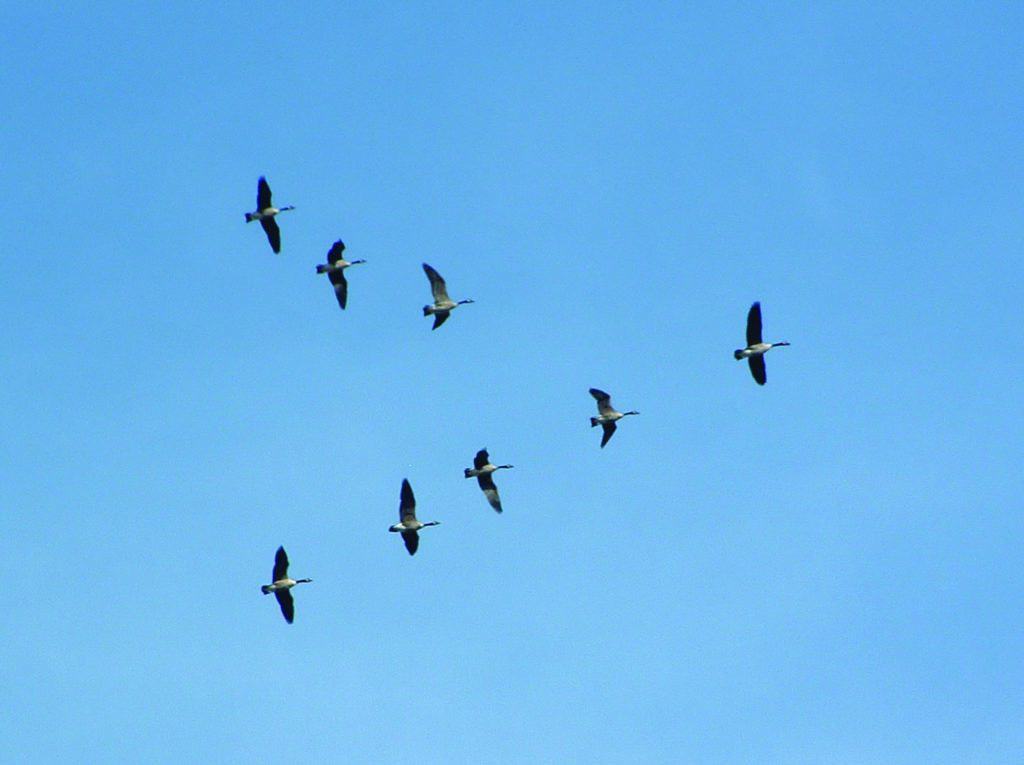
VF&W provides details on hunting bears, deer and Canada geese
Fish and Wildlife Service has expanded hunting opportunities on refuges and hatcheries in Vermont. These two great American pastimes have formed the bedrock of the nation’s wildlife conservation efforts, generating important dollars for habitat protection and restoration than any other outdoor pursuit.
On Aug. 18, the Dept. of the Interior’s U.S. Fish & Wildlife Service helped grow that legacy by finalizing a rule to open additional hunting and fishing opportunities in Vermont and across the country.
For more information, visit fws.gov/refuges/hunt-ing/ rules-regulations-and-improvedaccess

Canada Geese
Vermont’s resident Canada goose hunting season will be held Sept. 1 through Sept. 25 to help control Vermont’s resident Canada goose population prior to the arrival of Canada geese migrating south from Canada.
A hunting license is required, and a waterfowl hunter 16 or older must carry current federal and Vermont duck stamps. Federal stamps are sold at post offices, federal refuges and on the U.S. Fish and Wildlife Service website fws.gov/birds/get-involved/duck-stamp.php. Vermont duck stamps can be added to your hunting license on vtfishandwildlife.com and through license agents. The hunter must sign the federal duck stamp.
All migratory game bird hunters must also be registered with the Harvest Information Program (H.I.P.). This can be done on Vermont Fish & Wildlife’s website or by calling toll-free 1-877-306-7091.

Bears
Vermont has two bear hunting seasons. The early season, which requires a special bear tag, starts Sept. 1, and continues through Nov. 13 with one exception. Nonresident hunters using dogs cannot start bear hunting until Sept. 15. The late bear season begins Nov. 14 and continues through Nov. 22. A hunter may only take one bear during the year.
In addition to a hunting license, a bear hunter using a bow or crossbow must have a prior or current bow license or a certificate proving completion of a bow hunter education course.
The hunter must field dress the bear before taking it to a reporting station. It is also legal to skin the bear and cut it up in order to carry it out of the woods. Although the bear must be reported within 48 hours, Fish & Wildlife urges doing so quickly to cool the meat. The hunter must also collect and submit a pre-molar tooth from the bear at the time the bear is reported or within 30 days. The tooth provides important data on the age structure and size of the bear population.
Upon the request of a game warden, a person harvesting a bear is required to return to the kill site with a game warden.
Deer
The Vermont Fish & Wildlife Dept. says hunters are looking forward to Vermont’s upcoming Oct. 1- Nov. 13 and Nov. 30 – Dec. 15 archery deer hunting season.
A hunter may take up to four deer in Vermont’s two-part archery season if they do not shoot any deer in the other deer seasons. The purchase of an archery deer license and tag is required for each deer. No more than one of the deer taken during archery season may be a legal buck if no buck is taken in the other deer seasons. Antlerless deer hunting is allowed during archery season statewide this year.
Hunters must have a standard hunting license in order to purchase an add-on archery deer hunting license, except that nonresidents may purchase an “archery only deer license” costing $75. Licenses may be quickly and easily purchased on vtfishandwildlife.com.
Get your bow hunting certification online
The Vermont Fish & Wildlife Dept. is now offering a new way for Vermonters to obtain their bowhunter certification through an online-only education course. The department has made its hunter education, trapper education and now, bowhunter education classes available as an online-only option. Although offered on a limited basis, in-person bowhunter education courses are still available, but students will now have the option to take an in-person or online-only bowhunter education course to obtain their bowhunter certification.
Students who want to take the bowhunter education course will need to complete the online homework found here: bowhunter-ed.com/vermont/ and then sign up for the course.




